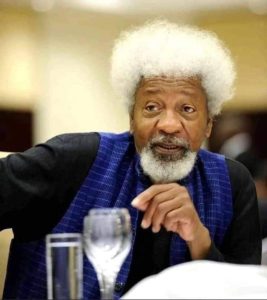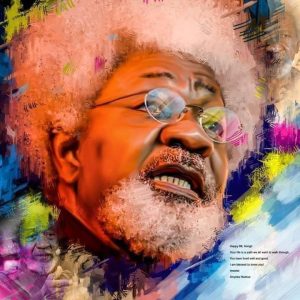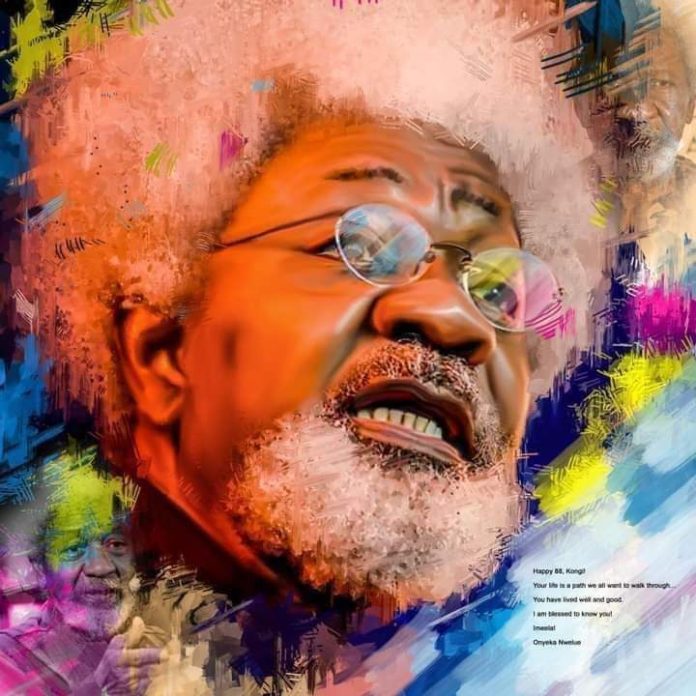1952 was the year I finished secondary school and I had written and passed entrance examinations into the University College, Ibadan which was the only tertiary institution available m the country then. Before the university session started, I got this job in a medical equipments supply company, where I had, this rather prestigious title of senior stores officer grade three! It wasn’t that the office environment or even the store itself was something as prestigious as its title; all there was to the business was this huge barnyard kind of warehouse where we stored equipments like catguts, surgical tools and bales of cotton wool amongst other things. Yet I was enjoying it and had even considered not going immediately into university.
All this soon changed of course, when the admission offer was followed by a Government scholarship. I just could not resist that bait, so I resigned my job as senior stores officer grade three, and packed my belongings together to begin my sojourn in University College Ibadan. The University was still at its old site which was nothing but an ex-army barracks at Eleiyele. We didn’t stay more than the first year before we were moved to the new site, on the old Oyo road.

Comparatively, I rather liked the old site of the campus for many reasons, although it was no match for the new site in terms of infrastructural beauty or convenience. While the old site at Eleiyele had a kind of English egalitarian atmosphere, at the new site attempts were made to create a kind of British collegiate atmosphere by the hall masters.
This meant that the students’ attitude changed from the natural realistic trend of life to assume very unreal and unrealistic colonial dimensions. Class distinctions became the order of the day, and the proliferations of elitist clubs had begun. Huge ballroom dances came into being which you attended in three piece suits, at which also you wouldn’t be caught dead without a tie. Sometimes a brooch was added too, for good measure. I too wore a tie and even the brooch but, I did not take it as seriously as the other students appeared to. Unlike the others, I didn’t begin to think too highly of myself. Students then felt they were a sort of very “special, very privileged people who were separate from the community, and because of this they took some most outrageous decisions.
I recall once, that the SRC (Students Representative Council) passed a resolution calling on the Government to remove the railway crossing at Sango because it disturbed them when they were returning from shopping in town or night clubbing at one of the many clubs available in Mokola. I found this very hilarious and very amusing, yet it was serious.
Students were suffering from a disease I can only summarise as having an overinflated sense of self.
The culmination of this ego trip was the Sigma Club. This was the Club of socially aware, supposedly exposed and sophisticated (more like coloniated) students who were strangers to poverty, and had become as near to a white man as the white parts of their eyes. They had these parties which were the high points of the social calendar on the campus. They went about, all suited up, even in the most blazing sun and prided themselves in being gentlemanly in their manners and ways, which to me read stiff, aloof and unnatural. Anyway Sigmaites were the conservatives and societal standards of sophisticated beings on campus.

It was not only Sigmaites who were guilty of this disease called colonial mentality raging through the university like wild fire. Most of the male students were very chauvinistic. They had this attitude to women which I didn’t like. The Bug, a campus journal, was their mouthpiece. The women on campus then, rather few in number, were bugged mercilessly, cruelly and hopelessly. In vicious vitrolic language. They were made to feel like second class citizens and pure trash. Some of the women on campus then, include the present Mrs. Ann Ofure and Francesca Emmanuel (who had such a great voice and was very active in the theatre). One of the ladies I can’t recall her name now, had a very impressive personality and she was also one of those who constantly wore Yoruba attire. I remember The Bug reached its lowest in my estimation, when in one of its editions this lady was bugged. They wrote: Market woman market woman, Jankoliko market woman Jankoliko.
They likened her to a rustic, illiterate market woman because she dared to wear native clothes! My God! that was the point at which I concluded that this disease should not be allowed to thrive any longer. I mean, how could students who prior to the opportunity of going to University would probably have been no more than farmers or traders get into a campus and change so much, forgetting their humble beginnings (some of them were very much below average and couldn’t have paid their way through school if they didn’t get a scholarship), turn round quickly and call those things which they have always lived with, were born into, and grown up with, crude, local, unrefined and crass, and call things which they’ve only being exposed to, for not more than five or ten years as worthy and necessary to give one a veneer of sophistication and worldliness. It only meant, or so I reasoned, that the colonialists (the British) had scored a bull’s eye. They had won a golden victory by colonising not only our land but also our minds. Sadly this reversal of values, of regarding everything of colonial or white-skinned origin as good, and those that were of African origin as substandard quality therefore bad, was the order of the day. The most infuriating aspect of this students colonial mentality was that it had a touch of arrogance in it.

The only way I knew to quell this unfair, unabashed trampling of African values and the women’s sensitivity, was to start another campus journal which we called The Eagle. We used it to attack colonial mentality. Some of my friends like Aig-Imoukhuede and Pius Oleghe were my co-editors. The Eagle attacked, always, The Bug’s libelous faces. One thing led to another and it became the precursor of one of the most important relics of my Ibadan associations -The Pyrates Confraternity. Myself, Pius Oleghe, Ralph Opara, Aig-Imoukhuede, Ifoghale Amata, Oyelola and Awe found we were like minds, who were determined to add the letters BA and BSc to our names. Yet we believed that a university education should be fun, without the viciousness which was prevalent on campus. We also thought students should map out a character of their own, rather than follow sheepishly the norms and traits of our largely European staff.
One day, seven of us got together in somebody’s room (whose I can’t remember because some of them lived next door to me) and said, ‘Let’s start something’. Everybody was enthusiastic and full of ideas. One person suggested the name, another thought of the attire, another person thought up our initiation ceremony. One thing which we all agreed to was that there wouldn’t be any room for colonial mentality in the club. Thus the Pyrates Confraternity was born. We were going to be a sort of counter revolution against colonialism.
Our first ever initiation ceremony took place in a kind of split level hut behind Tedder Hall. It was a kind of semi bunker (which I guess must have been destroyed now) just on the lawns, and it had a kind of alcove which was raised on a plank. We met there, discussed and held our elections. I was chosen to be the first Captain. We henceforth held our meetings (sailed) there. Although we might have been a little wild, it was not usually due to the influence of alcohol as most people assumed. We didn’t drink anything stronger than beer. Our concoction which was one of the symbols of our mystery was just Krola (the soft drink at that time) mixed with beer. Our noisy and boisterous activities were just the letting loose of otherwise restricted and chained instincts of youthful freedom and exuberance. Unlike popular belief also, the confraternity was not designed to be a secret cult. We sailed in my tIme, on top of the platform. Our performances which was just singing, telling stories and debating (albeIt at the top of our voices) were open to anybody. We discussed everything including politics and anybody who liked or wanted to loosen up was free to join us.
Most of the rites, ceremonies and mystery shrouding the club’s activities were later day innovations of future generations who identified with the ideals of the organisations. For example in my time we didn’t have the pyratical language. Our uniforms were not regularised too. Everybody was required to use his imagination and initiative as long as he came out as pyratical as possible. One of my life’s greatest thrills is to recall that day seven of us formed the Confraternity, and to remember that it not only survived after we left, for it was a phenomenon that spread to and was accepted by other institutions in the country. That it made so much impact on the lives of its adherents such that they didn’t want to stop being a part of it even after they left their various institutions. That this made them form the National Association of Seadogs to which graduate Pyrates have shown so much dedication that they have been able to carry out such humanitarian gestures and succeed in some social reforms. This is very commendable and is an issue of pride to me anytime I recall it.
We were only just beginning to heave a sigh of relief that an instrument was in force which could combat the unnecessary bourgeois circle of bow ties, suits and the regimentation and propagation of false values among the students; we were just beginning to make an impact on students’ life, to persuade them to come down to earth, to stop making a great fuss if Omelette was replaced on the menu by Akara and Moin Moin, which was what in reality most of us had for breakfast in our homes, when a new disease broke out amongst the students. This time, it was Tribalism!
Politics on campus became dictated and dominated by tribal instincts. Tribal unions came into being and some students used to walk to a place near the Zoo and Botanical Gardens at night to attend meetings of such unions. Everything one did was affected first by one’s tribe and later by one’s reason. The situation degenerated into violence sometimes. I remember once, pinning up a notice which was a means of instant communication then, since students always stopped at the notice board to catch up with the latest gist of happenings on the campus. You could always pin up an article you felt somebody else should read and stick on your photograph, so that whoever wanted to continue discussion on your views could identify you. I had something to say about tribalism and I wrote it up and pinned it on the notice board. It was to my greatest surprise that I found a fellow student who had read the article was ready to assail me. He was a Yoruba student who was so furious I thought he was going to beat me up. He stormed into my room and accused me of pretending I didn’t know what was going on. He asked me if I didn’t understand that this thing (tribal fraternity) was a matter of life and death before I went and put up that rubbish? He said what did I think I was? A pious Christian who turned the other cheek when slapped? Didn’t I know what they did to us in the last elections? Such was the vehemence and the animosity of his tribal fury. I simply wrote this off as horrendous. We members of the Pyrates Confraternity had a multi-tribal background. We were least influenced by tribe.
I must not be all negative about the period because the atmosphere was laden with many interesting cultural activities. For one, the theatre was at its liveliest. Our music circle was good and I remember I used to sing to the accompaniment of Christopher Okigbo on the piano. Professor Hill used to entertain us with his guitar to racy Western songs and folk music and life was not bad.
Academic life in Ibadan was just taking off. This could probably account for the fact that honours English which I wanted to read had not begun at Ibadan then. This accounted for my leaving the institution for Leeds University when I got a scholarshIp to study honours English. No sooner had I left than they started the course in Ibadan. However, I recall that I enjoyed my literature classes in Ibadan. Dr Christopherson took us in some kind of pre-linguistic course and he was very fussy about phonetics. There was Oliver Wood and Professor Dike in the History Department. I can’t really recall my lecturer in Greek (maybe because I dropped Greek soon after I got into Ibadan). For a sort of intellectual development, we had the debating society which organised debating competitions.
Perhaps the only part of myself I discovered in Ibadan was my counter-culture person. It was at Ibadan that I realised, and erupted my non-conformist attitude and stance. This led to my participating actively in the thing that gives me the most joy about Ibadan, The Pyrates Confraternity. It has been significant, because even tough my stay at Ibadan was short (since I left for Leeds after the Inter BA examInations), something which I was a part of has survived the forty or so odd years as an enduring part of the University tradition and culture. Although at some point, later day Pyrates diverted from the initial objectives of the Confraternity which was to counter colonial mentality and to protect the ladies from the undeserved harassment of chauvinistic males (a sort of knight in shining armour). We older Pyrates were invited to come in to straighten them out since they had got themselves in things which were downright evil. We came in, probed into the matter, we sunk some of the decks and told others to clean up their acts and separate themselves from some of these things which were really evil.
Somehow I formed some attachment to Ibadan which was not too visible until I went to Leeds. I found I missed the place so much; I remember I used to write quite often and got angry if I did not receive up-to-date gist of goings on at Ibadan. I tried to renew this attachment when I finished from Leeds, although I did not want to go straight into teaching because I wanted to do some research. Fortunately, I got a Rockefeller fellowship which enabled me forgo the research and I set up an acting company in 1969.
My return to Ibadan was a revelation. My first year was not all that pleasant. I clashed with a lot of the staff because of their stiff-necked ideas and their colonial mindedness, most of the staff by now were mostly black. I satirised some of them in my book, The Interpreters. Some of them formed the models portrayed with phony accents. Some of them were very ridiculous; very funny. I enjoyed my work so much that I never wrote up my thesis. I just utilised the materials in articles and in plays because a couple of my plays had been produced.













